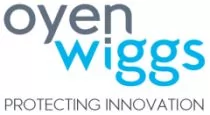- in United States
- with readers working within the Healthcare industries
On 4 June 2025, the Canadian Intellectual Property Office ("CIPO") released a practice notice regarding the use of AI in proceedings before the Trademarks Opposition Board ("TMOB").
In brief, the practice notice requires any party to a proceeding before the TMOB to provide a declaration if AI has been used to create any content in a document prepared for the proceeding and filed with the Registrar of Trademarks. The declaration must be in the first paragraph of such document and state that the filing party has reviewed and verified all AI-generated content and cited authorities. Failure to provide a declaration when required or providing a false declaration may lead to an award of costs against the filing party. CIPO has noted that the TMOB currently does not use AI to render decisions or analyze evidence in any of its proceedings.
CIPO provided examples of content that the TMOB considers to be AI-generated. For instance, written representations drafted using AI or legal authorities selected subjectively by AI qualify as such. Similarly, the state of the register evidence generated subjectively by AI, such as by asking AI to "find other registered trademarks that resemble [X]", falls into this category. By contrast, the state of the register evidence produced by search queries with objective criteria, such as "find all currently registered trademarks containing the word [Y]", is not considered AI-generated content. Additionally, exhibits created by AI that were attached to an affidavit and documents dictated using voice recognition or speech-to-text software are exempt from the declaration requirement.
The practice notice is available here.
CIPO Releases Practice Notice Regarding The Use Of AI In Proceedings Before The TMOB
The content of this article is intended to provide a general guide to the subject matter. Specialist advice should be sought about your specific circumstances.


